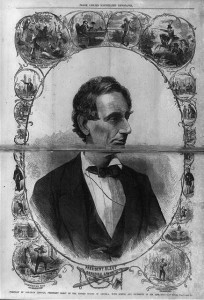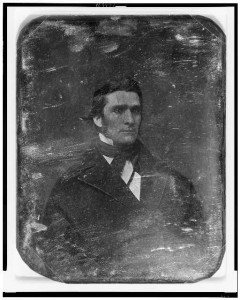A Seneca County, New York newspaper in December 1862 reprinted more feedback on the Union debacle at Fredericksburg. Facts, speculation, opinion, and politics all seem to be mixed together as the northern press was trying to get to the bottom of what happened:
The Losses at Fredericksburg.
Four days have elapsed since the fight at Fredericksburg and the country is kept in painful suspense with regard to the loss of the federal army. It is even given out in a dispatch from Washington that the figures cannot be definitely ascertained for several days to come.There is really no obstacle in the way of giving within a day or two of an engagement such as that of Saturday, a complete report of the killed, wounded and missing. The organization of an army like that under Burnside is so perfect that in a few hours after being required full reports might be obtained from every regiment and division of troops. Gen. Burnside probably has the reports – for he must know the condition of his army to act understandingly – and it is likely that they are kept back from the public by the strategists of the war office who are so inscrutably wise in all their movements. – Rochester Union.
_________
A Washington correspondent wrote us, Monday night –
“OUR LOSSES ARE 20,000.”
We did not credit him, and, in an excess of prudence, threw his manuscript aside, – but we fear he was too near the truth.
A letter, we copy from an edition of the Tribune, puts down – Loss.
Couch’s Corps ………………….10,000
Reynolds’ Corps of Franklin’s Division …………….4,000
These do not include Wilcox’s Corps, or Hooker’s Grand Division.
Hooker went in last, and suffered least – but his losses must have been great. – N.Y. Express.
__________
The New York Express in view of the overwhelming defeat of the Federal army, and the terrible slaughter which followed, says, “it is evident, now, – either the Administration must die, or the Government must die. The Administration and the Government can no longer live together. One or the other must perish. Which shall it be? Never, never, the Government. – long live the Government! – and, oh, ye Republicans – responsible for this Administration – change or abolish your Administration. As Mr. Lincoln must be kept – the Barnacle of the Constitution – let Republican Congressmen create for him an able, discreet Adminisration.
_________
The New York World in speaking of the battle of Fredicksburg says positively that [Gen.?] Burnside acted under strict orders; he was compelled to move upon Fredericksburg by preamptory directions from Washington, which domineered over his judgment and extorted his obedience. When he was ordered to Fredericksburg he had the promise of Gen. Halleck that his pontoons should meet him there. Gen. Halleck forgot to give the order! – and they were delayed so long that the enemy occupied the heights. In this emergency a council of war was held; all the corps commanders opposed an advance; but Burnside said, in conclusion, that he was compelled to advance by orders from Washington.”
_________
HON. ERASTUS BROOKS writes the New york Express from Washington that the battle at and near Fredericksburg was fought by the President of the United States and by Gen. Halleck, (by the latter especially), against the judgment and remonstrance of General Burnside and of General Sumner, and perhaps of other officers associated with them, in command of the Army. These two names are given, – and the facts can all be furnished to Congress, if an inquiry is ordered. This inquiry ought to be pressed at once for several important reasons.
Erastus Brooks was born in 1815 in the Maine District of Massachusetts (Portland). He was a New York politician and worked as a journalist in New York and Maine, including a stint editing the Portland Advertiser, a Whig paper.
At it turned out, total Union casualties were about 12,600 dead, wounded, prisoners, and missing.

![Halt of Wilcox's Troops in Caroline street prevous[sic] to going in to battle-- (by Arthur Lumley, New York Illustrated News, 10 January, 1863, p. 148; LOC: LC-DIG-ppmsca-20791)](https://www.bluegrayreview.com/wp-content/uploads/2012/12/20791r-300x240.jpg)

